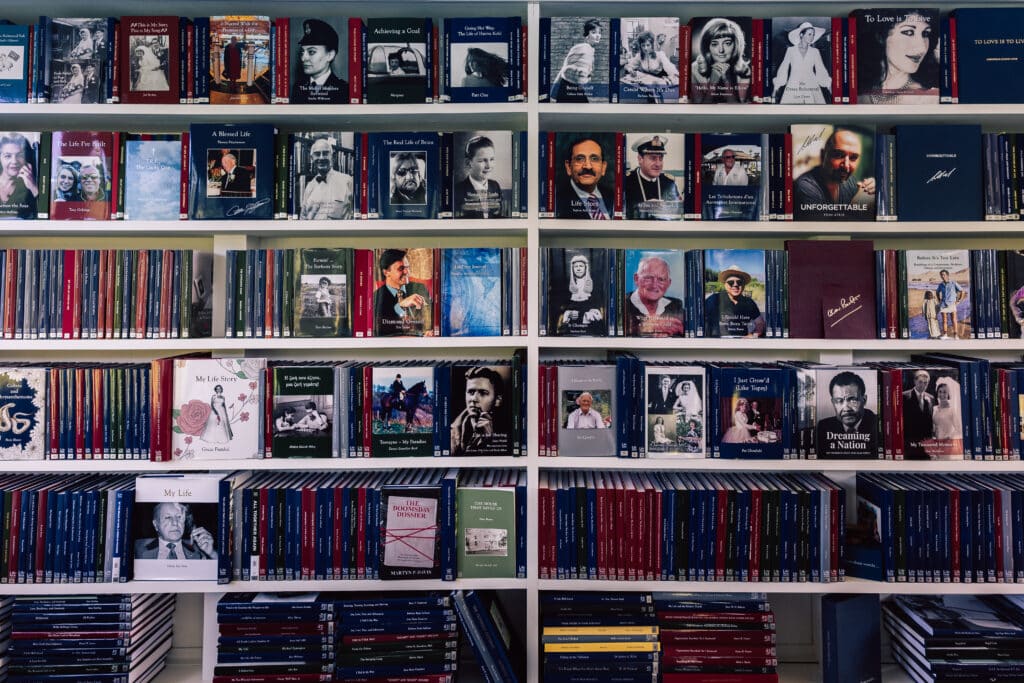In today’s world, information is consumed at high speed and in tiny chunks. On social media and via text messages, we’ve grown accustomed to receiving and processing messages at a glance. The contents might surprise us or make us laugh, but within seconds we’ve moved on to the next one.
This rapid-fire approach to the dissemination of information has its benefits: it gives us the information we need in short amounts of time, and it saves us the hassle of having to comb through reams of text to find the one nugget of useful knowledge we’re looking for.
But it also has its drawbacks. Chief among them? We often lose the richness, power and beauty of story – something we humans have relied on since the dawn of time to connect, relate, illuminate, educate and inspire one another.
Everyone has a story
Fortunately, there are plenty of stories waiting to be told. They live inside each of us. They’re the unique yet relatable experiences we’ve all had and the lessons they’ve taught us. Finding the glory in each person’s story – and sharing it in a compelling and engaging way – is the goal of every LifeBook ghostwriter.
Stepping into someone else’s shoes
As a ghostwriter, nothing brings me more joy than receiving a fresh 90-minute interview with one of our authors. Sinking into my soft desk chair and placing my phone on Do Not Disturb, I’m able to don a pair of noise-cancelling headphones and immerse myself in the author’s unique story.
It’s always a great pleasure to listen as a person dips back into their past. As I listen, their recollections begin to take shape as a cohesive narrative. Some are fleeting and fragile, others are momentous, but they’re all about life – that individual’s life, a family’s life and, in a larger sense, all our lives.
I’m amazed by what I didn’t know
When I listen to such stories, I’m amazed by all the things I didn’t know. Dishes I’ve never eaten. Games I’ve never played. Important historical events that never made it onto my radar. Hearing an author talk about them broadens my horizons and makes me grateful that I decided to become a ghostwriter.
When, having listened to the author recall their memories, I begin to assemble and weave these tales into a more linear narrative, I often end up Googling many names, places and events. This isn’t me just checking spellings, dates and other details; it’s an urge to satisfy my own – and what I imagine to be the eventual readers’ – curiosity.
I’m also amazed by how much I identify with
When I listen to stories, I’m frequently amazed at how much I can identify with. This is one of the more surprising and thrilling parts of being a ghostwriter. From childhood mischief and mishaps to holidays gone right or wrong and everything in between, each person’s life is equal parts distinct and relatable.
The thrill and fear of a new school, town, job or relationship. The pain of personal loss. The triumph of overcoming seemingly insurmountable odds. Whatever the theme or subject, listening to others’ memories invites us to reflect on our own stories and those of our loved ones. It creates parallels and connections. It enriches lives.
Stories cause us to think and dream
To listen to a life unfolding, and to then start shaping it into a full, rich, engaging narrative packed with information, entertainment and emotion, is challenging. It takes patience, dedication, persistence, hard work and highly developed writing skills to become a ghostwriter.
However challenging the process might be, bringing a story to life is incredibly rewarding. Stitching, knitting and weaving together the details of someone’s life and witnessing the pride and joy it brings them is one of the most fulfilling parts of the job.
The invisible hand of editing
Behind every LifeBook ghostwriter is an editor – someone who helps shape the story, preserve the author’s voice and ensure the final narrative reads smoothly and clearly. While the writer brings the memories to life, the editor ensures those memories land with impact, flow with logic and shine with clarity.
It’s a delicate balancing act. Editors don’t rewrite or impose their own voice; they work quietly behind the scenes to smooth transitions, strengthen structure and gently question inconsistencies or gaps. It’s not just about grammar or punctuation – it’s about honouring the person behind the story while enhancing the readability and resonance for future generations.
Your loved ones need your story
Your story has power. You may not realise that, at first, and it might seem unlikely, but no one else on Earth has the story you have. Sharing it with others can take them on a journey through time and space that would be impossible without you, and it can endure long after the narrative is over. Your story can help others to think, dream, remember and wonder to a much greater degree than the fleeting messages that flash across our phone screens.
So, don’t let your story slip away in the blur of everyday noise. Take the time to preserve it – not just for yourself, but for your loved ones, future generations and the unexpected readers who might find reflections of, or counterpoints to, their own lives within yours. In a world obsessed with speed, your story is a powerful reminder that some things deserve to be remembered slowly, deeply and in full.
Written by the LifeBook Memoirs editorial team




